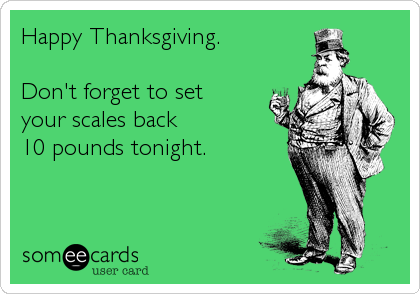It was the big Federalist Society meeting this weekend in which Justice Scalia was remembered and celebrated. One of the takeaways is that 11th Circuit Judge William Pyror is quietly the favorite to get Scalia's seat. (Here's
a short interview with him from the weekend.) He would be the first 11th Circuit judge to get the nod...
It's hard to know exactly what PE Trump is thinking here though as he was busy this weekend
tweeting about Hamilton.
In the meantime, I repost Judge Milton Hirsch's Constitutional Calendar today, which is really interesting:
On Nov. 21, 1864, in response to a request from
Massachusetts Governor John A. Andrew asking him to express his
condolences, President Lincoln wrote to Mrs. Lydia Bixby, a widow who
was believed to have lost five sons during the Civil War. Lincoln's
letter was later printed in the Boston Evening Transcript. Later
still, it was revealed that two, not all five, of Mrs. Bixby's sons died
in battle; one deserted, one was honorably discharged, and another
either deserted or died a prisoner of war.
The authorship of the letter has been debated by scholars, some of
whom believe it was written by John Hay, one of Lincoln's secretaries.
The original of the letter was destroyed by Mrs. Bixby, who was a
Confederate sympathizer and disliked Lincoln. Copies
of an early forgery circulated for years, causing many people to
believe that they had the original letter.
None of which matters. The letter is the finest piece of
epistolary prose ever written on this continent, and if Lincoln didn't
write it, he meant to. It serves to remind us that the highest function
of political leadership in America's democracy is
to inspire us with a regard for those principles that set this country
apart.
As I do every year on the anniversary of its writing, I take pleasure in sharing this remarkable letter with my friends:
"Dear Madam,
"I have been shown in the files of the War Department a statement
of the Adjutant General of Massachusetts that you are the mother of five
sons who have died gloriously on the field of battle. I feel how weak
and fruitless must be any word of mine which
should attempt to beguile you from the grief of a loss so overwhelming.
But I cannot refrain from tendering you the consolation that may be
found in the thanks of the republic they died to save. I pray that our
Heavenly Father may assuage the anguish of
your bereavement, and leave you only the cherished memory of the loved
and lost, and the solemn pride that must be yours to have laid so costly
a sacrifice upon the altar of freedom.
"Yours very sincerely and respectfully,
"A. Lincoln"

